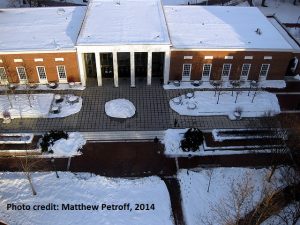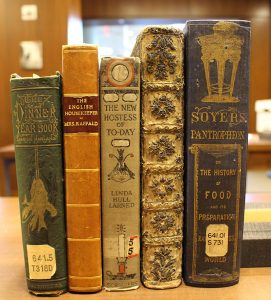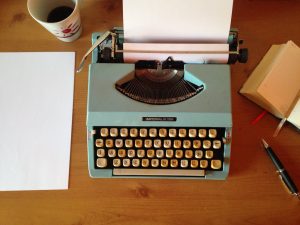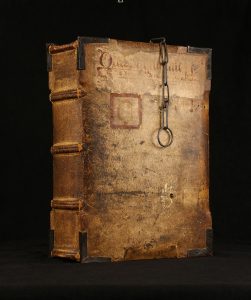Intersession at Homewood is a great opportunity to try something new. Even if it’s a course in your major, Intersession courses often focus on aspects or topics that can’t be addressed in a semester-long class.
is a great opportunity to try something new. Even if it’s a course in your major, Intersession courses often focus on aspects or topics that can’t be addressed in a semester-long class.
MSEL librarians offer four Intersession courses for your consideration. Take a dive into Special Collections with antique cookbooks, learn more about library research and grant writing, or think about what ‘open scholarship’ means to you. Descriptions and links are below. Registration opens Tuesday, December 5th. If you have questions about the courses, please contact the librarians.
 “Cooking the Books”
“Cooking the Books”
Students will examine cookbooks and cookery ephemera ranging from the 16th through the early 20th centuries in order to learn about book history, forgotten celebrity chefs, the art of creating “manly” sandwiches, and just why so many cookbooks included recipes for treating the plague. Students will also have the opportunity to recreate a recipe from one of the antique cookbooks. Bon appetit!
Librarian: Heidi Herr
 Library Research and Library/Grant Proposal Writing
Library Research and Library/Grant Proposal Writing
This course offers training to undergraduate and graduate students on the fundamentals of library research and research/grant proposal writing. The course will introduce the students to the major research resources (esp. social sciences), strategies and techniques to conduct effective research, and how to use library research to enhance research and grant proposal writing. This course aims to help students learn the basics of research and grant proposal writing and develop useful research skills that will benefit them in the long run.
Libarian: Yunshan Ye
Open Scholarship: How to be an Open Researcher Today
‘Open’ is a term often used to describe the movement to share scholarship and research without pay walls. Open scholarship topics include open source, open access, open data, open educational resources, and open science. What do these terms really mean? And how will this affect your writing and research as you move through your academic career? These are the questions we will explore in this one-credit course.
Librarian: Robin Sinn
Johns Hopkins’ Baltimore
You know he spelled his name with an S, but what else do you know about our university’s namesake, Johns Hopkins? In this course you’ll explore the life and legacy of Quaker, businessman, and philanthropist Johns Hopkins. Examine historic documents from our own Special Collections and visit Homewood House and Hopkins’ former home, Clifton, to learn about both the man himself and life in 19th century Baltimore.
Archivists: Jennifer Kinniff and James Stimpert
What happened to early books after they were made? In this course, students will examine rare books and manuscripts in our special collections and see firsthand the ways that owners transformed their books, from the Renaissance up to our own time. By looking at the “afterlives” of these early books, we can better understand how societies approached and valued the past and its artifacts. Neil Weijer, PhD, Postdoctoral Curatorial Fellow in Premodern and Early Modern Studies

